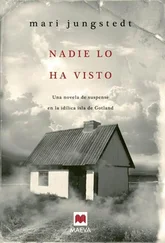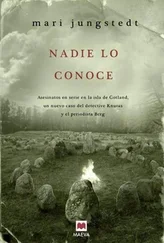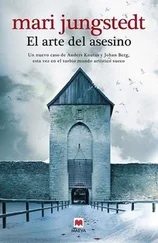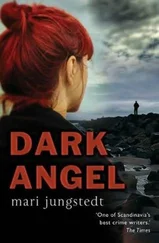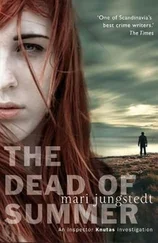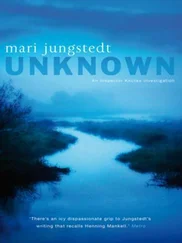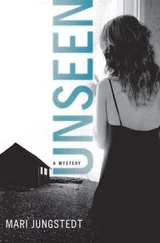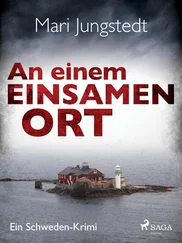Mari Jungstedt - Unspoken
Здесь есть возможность читать онлайн «Mari Jungstedt - Unspoken» весь текст электронной книги совершенно бесплатно (целиком полную версию без сокращений). В некоторых случаях можно слушать аудио, скачать через торрент в формате fb2 и присутствует краткое содержание. Жанр: Полицейский детектив, на английском языке. Описание произведения, (предисловие) а так же отзывы посетителей доступны на портале библиотеки ЛибКат.
- Название:Unspoken
- Автор:
- Жанр:
- Год:неизвестен
- ISBN:нет данных
- Рейтинг книги:3 / 5. Голосов: 1
-
Избранное:Добавить в избранное
- Отзывы:
-
Ваша оценка:
- 60
- 1
- 2
- 3
- 4
- 5
Unspoken: краткое содержание, описание и аннотация
Предлагаем к чтению аннотацию, описание, краткое содержание или предисловие (зависит от того, что написал сам автор книги «Unspoken»). Если вы не нашли необходимую информацию о книге — напишите в комментариях, мы постараемся отыскать её.
Unspoken — читать онлайн бесплатно полную книгу (весь текст) целиком
Ниже представлен текст книги, разбитый по страницам. Система сохранения места последней прочитанной страницы, позволяет с удобством читать онлайн бесплатно книгу «Unspoken», без необходимости каждый раз заново искать на чём Вы остановились. Поставьте закладку, и сможете в любой момент перейти на страницу, на которой закончили чтение.
Интервал:
Закладка:
Almost everyone was present for the morning meeting of Regional News: several cameramen, an early-morning editor, reporters, producers, and program planners. It was crowded in the lounge area of the newsroom. After they had discussed the latest broadcast, criticizing some parts and praising others, the editor Max Grenfors presented the day’s roster of news stories. The assignments might very well change during the course of the meeting. Some reporter might have his own idea, or the objections to a story proposal might be so strong that it ended up in the wastebasket, or the discussion might take a new direction and lead to a reworking of all their plans. That’s exactly the way things needed to function in a newsroom, thought Johan, who enjoyed the morning gatherings.
He briefly recounted to the others what he knew about the murder on Gotland. Everyone agreed that it sounded like a drunken fight. Johan was assigned to keep an eye on the situation since he was going to Gotland the next day anyway, to do a report on the controversy regarding a campground that was threatened with closure.
The Regional News editorial offices operated under high-pressure deadlines. Each day they produced a twenty-minute program, basically from scratch. A story that aired for two minutes usually took several hours to film and another two hours to edit. Johan was always nagging his bosses about giving the reporters more time.
He was not in favor of the changes that had been implemented since he had started out as a TV reporter ten years earlier. Nowadays the reporters hardly had time to look over their material before they had to submit it to the editor. This had a disastrous effect on quality. Good images that the cameraman had taken a lot of trouble to capture risked being lost because no one discovered them in all the rush. The cameramen were often disappointed when they saw the final story. As soon as management started taking shortcuts in the use of visual images, which were the real strength of TV, then things were really going downhill. Johan refused to write up his reports or do any editing until he had gone through all the material himself.
Of course there were exceptions. When time was tight and the story was thrown into editing twenty minutes before the broadcast, they still succeeded in putting it together.
Unpredictability was the real draw in terms of working in a newsroom. In the morning he never knew how the day was going to go. Johan worked mostly as a crime reporter, and the contacts that he had established over the years were invaluable for the newsroom. He also had primary responsibility for covering Gotland, which had been placed under the domain of Regional News a little over a year ago. Swedish TV’s large deficit meant that they had closed the local office on Gotland and moved the crew from Norrkoping back to Stockholm. Johan was happy to take on Gotland, a place that had delighted him since he was a child. And now it was no longer just the island that attracted him.
Spot tugged at his leash. To think he’s never learned to heel, thought Fanny angrily, but she didn’t feel like yelling at him. The streets were deserted in the residential neighborhood where she was walking. A dark mist had settled over Visby, and the asphalt was shiny from the gentle rain. An inviting glow came from the curtain-framed windows of all the houses. How orderly everything was. Flowers on the windowsills, gleaming cars in the driveways, and charming mailboxes. Here and there a well-tended compost pile.
She had a good view inside the homes at this time of the evening, after dark. In one, copper utensils hung on the wall in the kitchen; another had a brightly painted, rustic grandfather clock. In a living room a little girl was jumping up and down on the sofa, talking to someone that Fanny couldn’t see. Over there was a man holding a dustpan in one hand. A few crumbs must have landed on the rug, she thought and pressed her lips together. A man and woman were standing in another kitchen window; they seemed to be cooking together.
Suddenly the door to a big house opened. An elderly couple came out and went over to a waiting taxi as they chatted merrily. They were well dressed, and Fanny smelled the strong scent of the woman’s perfume as they passed quite close to her. They didn’t notice that she had stopped to watch them.
She was freezing in her thin jacket. Back home her mother was waiting in the silent and dark apartment. She worked the night shift at Flextronics. Fanny had met her father only a few times in her life, the last time when she was five years old. His band had been playing a gig in Visby, and he dropped by for a brief visit. The only thing she remembered about him was his big, dry hand holding hers, and his brown eyes. Her father was as black as night. He was a Rastafarian and came from Jamaica. In the photos she had seen, he had long tangled locks of hair. They call them dreadlocks, her mother had told her.
He lived in Stockholm, where he played drums in a band, and he had a wife and three kids in Farsta. That was all she knew.
She never heard from him, not even on her birthday. Sometimes she tried to imagine what it would be like if he and her mother had lived together. Maybe her mother wouldn’t drink as much. Maybe she would be happier. Maybe Fanny wouldn’t have to take care of everything: the cooking, cleaning, and laundry, taking Spot for a walk and doing the grocery shopping. Maybe she wouldn’t have a guilty conscience about going out to the stables if her father was around. She wondered what he would say if he knew how things were for her. But he probably didn’t care; she meant nothing to him.
She was simply the product of his love affair with her mother.
The first thing Jacobsson and Wittberg noticed was the group of sculptures. Almost two meters tall, made of concrete, and gathered in one place on the property. One depicted a rearing horse that was desperately whinnying at the clouds, another looked like a deer, a third was a moose with a disproportionately large head. Grotesque and phantomlike, they stood there in the pouring rain on the flat expanse of lawn.
They dashed from the car to the house, whose roof extended over the simple porch, offering some protection. A typical one-story building from the fifties with a basement and dirty gray stucco facade. The steps were rotting, and there seemed to be an imminent risk that they might put a foot right through them. The doorbell was almost inaudible. After a minute a tall, stout woman in her seventies opened the door. She was wearing a cardigan and a floral-patterned dress. Her hair was thick and white.
“We’re from the police,” Wittberg explained. “We want to ask you some questions. Are you Doris Johnsson, the mother of Bengt Johnsson?”
“That’s right. Has he gotten mixed up in something again? Come in. You’re getting soaked.”
They sat down on the leather sofa in the living room. The room was cluttered with things. In addition to the sofa group, there were three armchairs, a rustic chiffonier, a TV, pedestals for flowers, and a bookshelf. The windowsills were crowded with potted plants, and every available space in the room held glass figurines in various designs. They all had one thing in common: they depicted animals. Dogs, cats, hedgehogs, squirrels, cows, horses, pigs, camels, and birds. In various sizes, colors, and poses, they were enthroned on tables and benches, in windows, and on shelves.
“You collect these things?” asked Jacobsson, rather foolishly.
The woman’s lined face brightened. “Yes, I’ve been doing it for years. I have six hundred and twenty-seven pieces,” she told them proudly. “So what was it you wanted?”
“Well, I’m sorry to say that we’ve brought some bad news,” said Wittberg, leaning forward. “One of your son’s friends has been found dead, and we suspect that someone killed him. His name is Henry Dahlstrom.”
Читать дальшеИнтервал:
Закладка:
Похожие книги на «Unspoken»
Представляем Вашему вниманию похожие книги на «Unspoken» списком для выбора. Мы отобрали схожую по названию и смыслу литературу в надежде предоставить читателям больше вариантов отыскать новые, интересные, ещё непрочитанные произведения.
Обсуждение, отзывы о книге «Unspoken» и просто собственные мнения читателей. Оставьте ваши комментарии, напишите, что Вы думаете о произведении, его смысле или главных героях. Укажите что конкретно понравилось, а что нет, и почему Вы так считаете.

